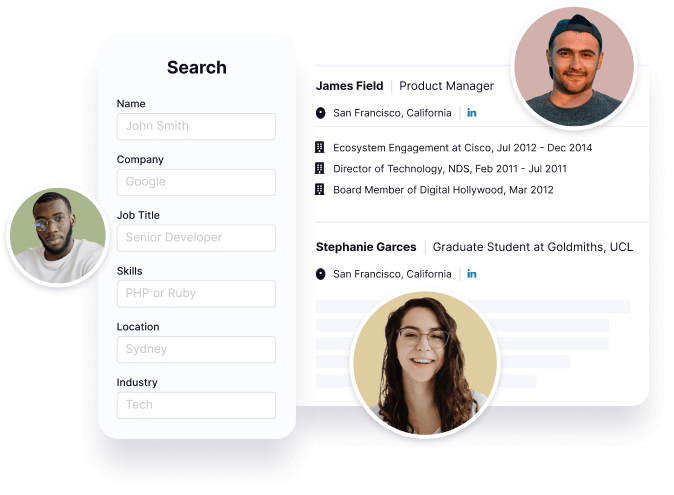Timothy Arlen's Email & Phone Number
Machine Learning and AI Lead
Timothy Arlen Email Addresses
Timothy Arlen Phone Numbers
Timothy Arlen's Work Experience

Just Auto Insurance, Inc.
Machine Learning and AI Lead
June 2020 to Present



Penn St. University Physics
Postdoctoral Researcher
September 2013 to October 2015

UCLA Physics and Astronomy
Graduate Student Researcher
September 2007 to July 2013
Show more
Show less
Frequently Asked Questions about Timothy Arlen
What is Timothy Arlen email address?
Email Timothy Arlen at [email protected], [email protected] and [email protected]. This email is the most updated Timothy Arlen's email found in 2024.
How to contact Timothy Arlen?
To contact Timothy Arlen send an email to [email protected], [email protected] or [email protected].
What company does Timothy Arlen work for?
Timothy Arlen works for Just Auto Insurance, Inc.
What is Timothy Arlen's role at Just Auto Insurance, Inc.?
Timothy Arlen is Machine Learning and AI Lead
What is Timothy Arlen's Phone Number?
Timothy Arlen's phone (501) ***-*135
What industry does Timothy Arlen work in?
Timothy Arlen works in the Computer Software industry.
Timothy Arlen's Professional Skills Radar Chart
Based on our findings, Timothy Arlen is ...
What's on Timothy Arlen's mind?
Based on our findings, Timothy Arlen is ...
Timothy Arlen's Estimated Salary Range
Timothy Arlen Email Addresses
Timothy Arlen Phone Numbers
Find emails and phone numbers for 300M professionals.
Search by name, job titles, seniority, skills, location, company name, industry, company size, revenue, and other 20+ data points to reach the right people you need. Get triple-verified contact details in one-click.In a nutshell
Timothy Arlen's Ranking
Ranked #68 out of 1,361 for Machine Learning and AI Lead in Arkansas
Timothy Arlen's Personality Type
Introversion (I), Sensing (S), Thinking (T), Perceiving (P)
Average Tenure
2 year(s), 0 month(s)
Timothy Arlen's Willingness to Change Jobs
Unlikely
Likely
Open to opportunity?
There's 85% chance that Timothy Arlen is seeking for new opportunities











Timothy Arlen's Social Media Links
/in/timothyarlen /school/ucla/ /company/just-insurance /redir/redirect